Climate AI Nordics Newsletter, June 2025
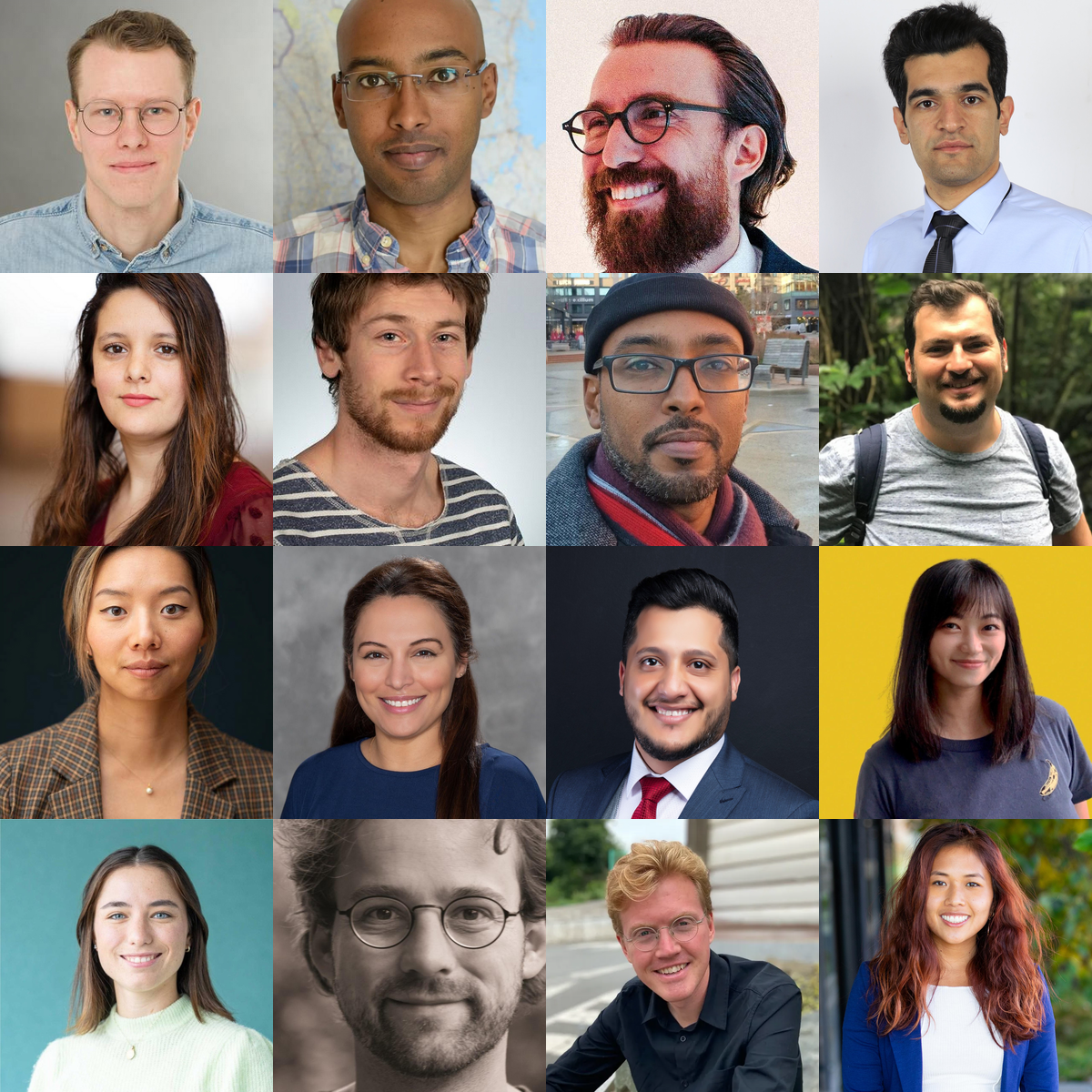
Welcome to the Climate AI Nordics Newsletter June 2025.
Since our launch in October 2024, the Climate AI Nordics network has grown to include 171 members across the Nordic region, along with 52 international affiliates who contribute to our shared interests. The network brings together researchers and practitioners working at the interface of artificial intelligence and climate challenges, including mitigation, adaptation, and monitoring.
If you know colleagues working in this space—across academia, public agencies, or industry—please let them know about Climate AI Nordics. 👉 climateainordics.com/join
In this issue, we share updates from our first nine months, including webinars, collaborations, and events. You’ll find a recent paper on neural networks for modeling atmospheric clusters, news from the newly launched TreeSense research center in Copenhagen, and a new section on job openings across the Nordic AI-climate community. As always, you can share your own work, events, or opportunities with us to include in future newsletters.
News
Climate AI Nordics first 9 months

2025-06-25 From pioneering AI models for weather and biodiversity to our first Nordic Workshop on AI for Climate Change, the Climate AI Nordics community has grown and thrived over the past 9 months. Here’s a look back at our webinars, newsletters, and key milestones.
(Read more)
Featured paper: Accurate modeling of the potential energy surface of atmospheric molecular clusters boosted by neural networks
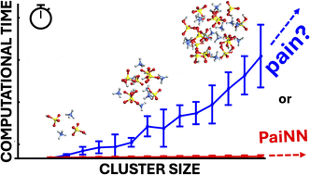
2025-06-25 This paper explores the potential for using neural networks to model atmospheric particle formation. The neural network-based model, tasked here to predict cluster binding energies, achieved the target chemical accuracy of less than 1 kcal/mol, although kernel ridge regression had a slightly lower error. Training was over an order of magnitude faster with the neural network compared to kernel ridge regression.
(Read more)
TreeSense Center of Excellence Officially Launched at University of Copenhagen
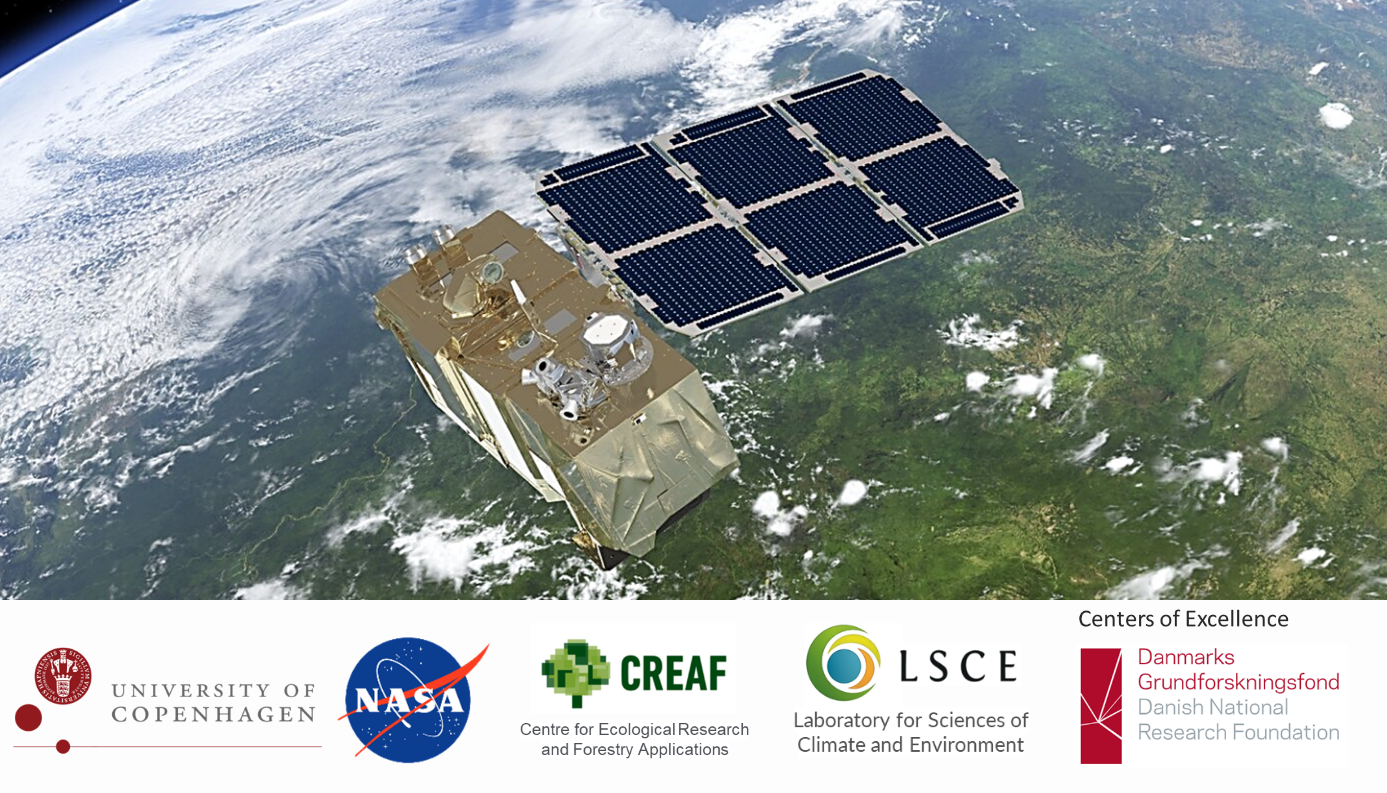
2025-06-24 The TreeSense Center of Excellence was officially launched on 24 June 2025 at the University of Copenhagen. The new research center, supported by the Danish National Research Foundation, brings together experts in remote sensing, ecology, and AI to revolutionize how we monitor global tree resources.
(Read more)
Climate AI Nordics to post news on job openings
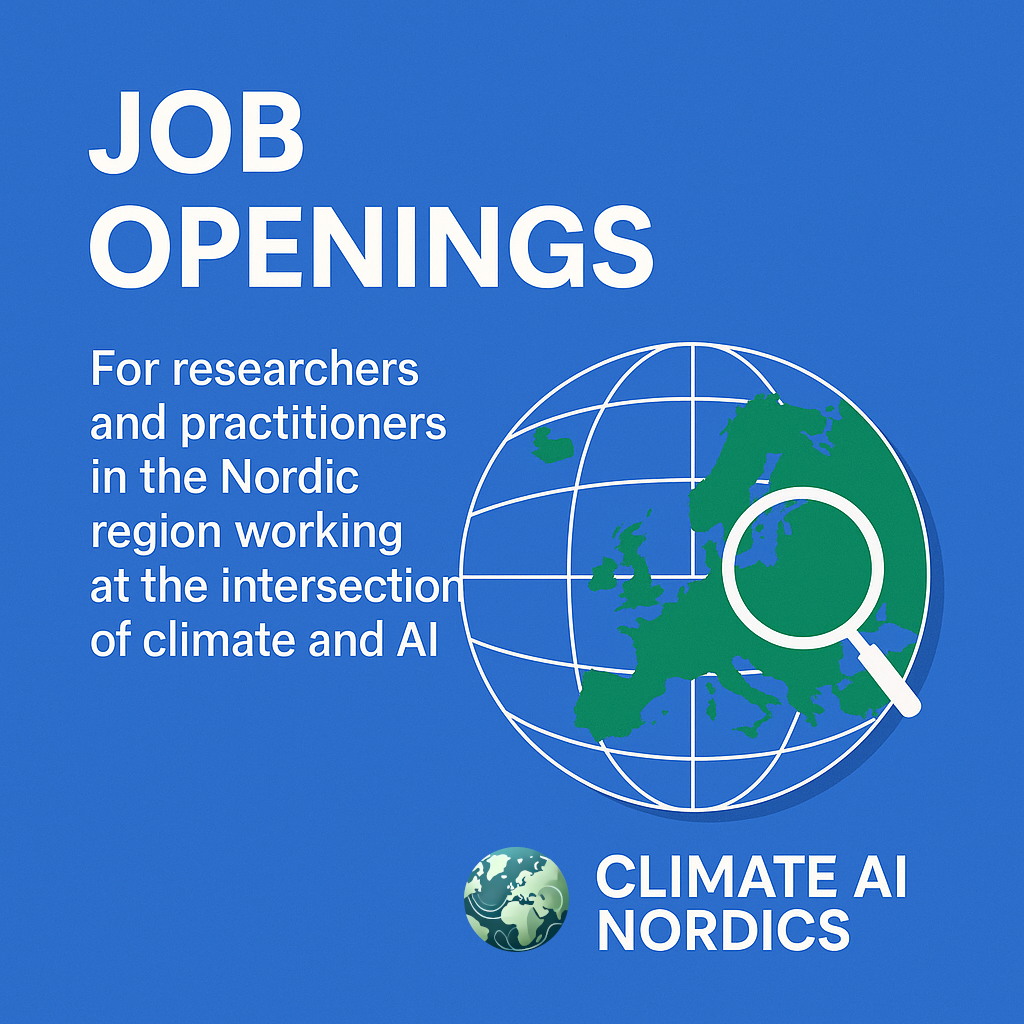
2025-06-24 Climate AI Nordics aims to further help boost the Nordic AI-for-climate and AI-for-environment ecossystems, by now also including relevant job openings in our monthly newsletters. These job openings will also appear on our news page. Please get in touch with us regarding job openings that you’d like to share with our community.
(Read more)
Featured member
Featured member, June 2025: Edmond Sacre
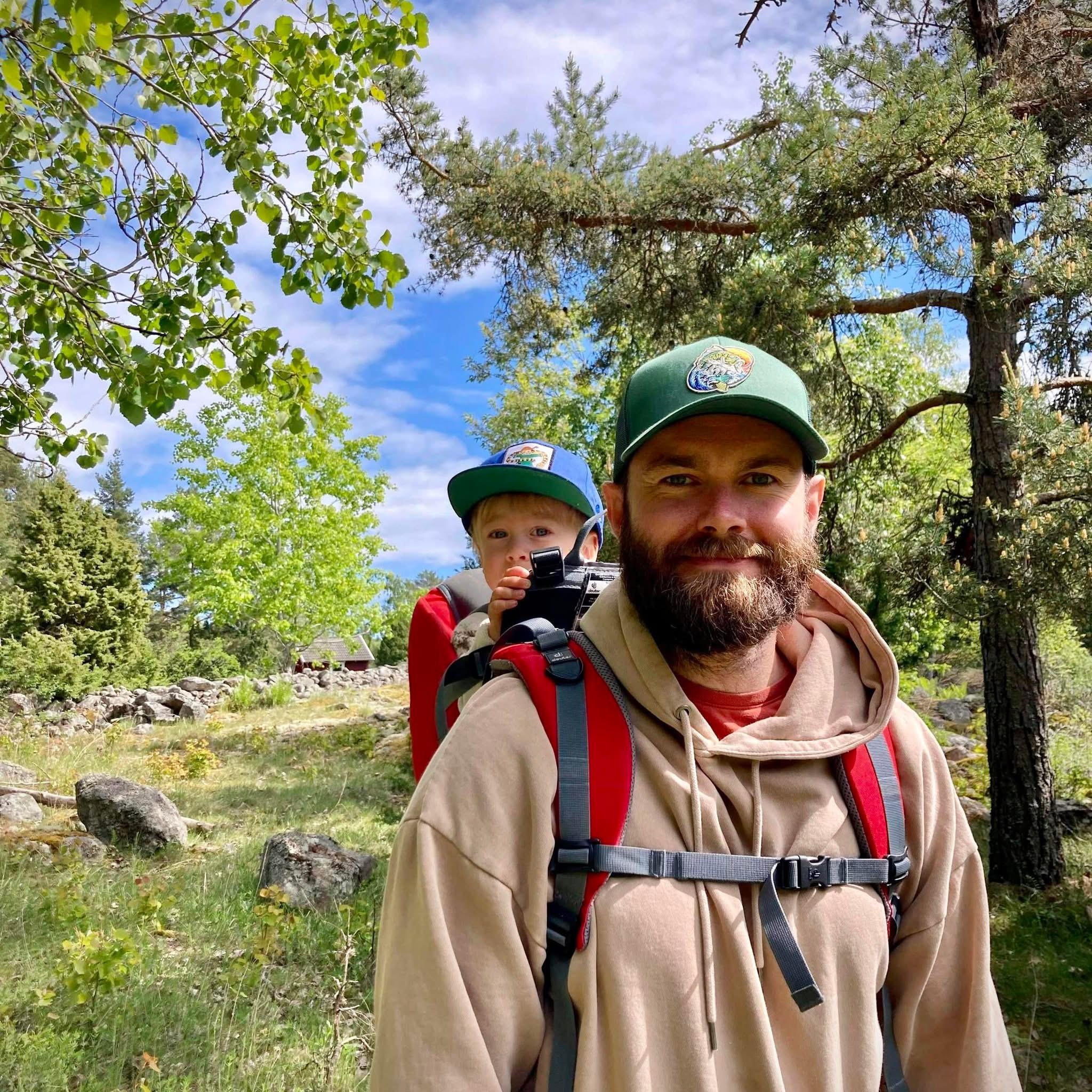
2025-06-24 Edmond is a researcher at SLU Aqua (Swedish University of Agricultural Sciences) within the Unit for Protected Areas and Marine Planning. He is particularly interested in applied research questions related to mapping aquatic biodiversity and using this information to inform conservation decisions. More specifically, he is interested in how we might be able to utilize the power of machine learning and AI to map species and ecosystems, especially where data are limited.
(Read more)
Coming events
DIGeMERGE 2025 Conference
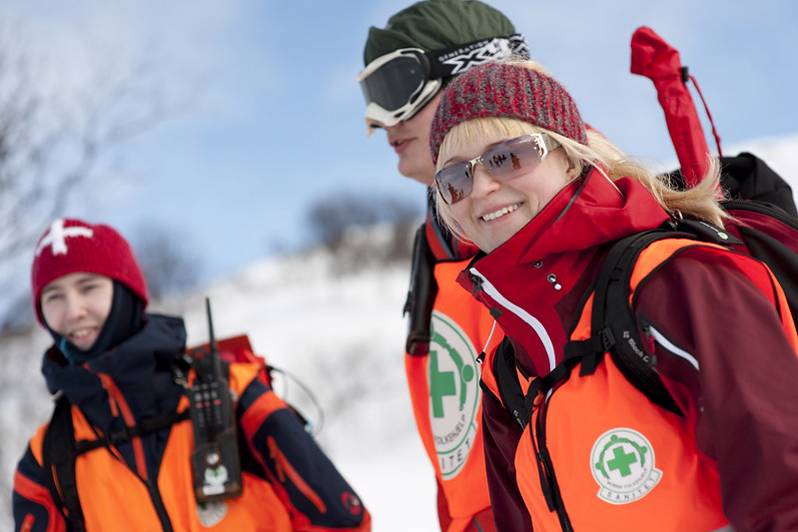
Event date: 2025-08-14.
DiGeMERGE 2025 is an international conference organized by researchers from the Digital Emergency Communication (DIGeMERGE) project. Funded under the CHANSE programme by the EU Commission (Horizon 2020) and Nordic research councils, DIGeMERGE explores the role of digital tools and platforms in public emergency communication across the Nordic countries. The conference provides a platform for researchers and students to present their work on the digital transformation of public emergency communication. Whether focusing on emergency management theories, risk analysis methods, or empirical case studies, participants will have the opportunity to share insights and engage with scholars from diverse disciplines, including the natural and social sciences.
(Read more)
Debiasing AI predictions for causal inference without fresh ground truth data

Event date: 2025-08-28.
Webinar with Markus Pettersson, Chalmers University of Technology. Machine learning models trained on Earth observation data, particularly satellite imagery, have recently shown impressive performance in predicting household-level wealth indices, potentially addressing chronic data scarcity in global development research. While these predictions exhibit strong predictive power, they inherently suffer from shrinkage toward the mean, resulting in attenuated estimates of causal treatment effects and thus limiting their utility in policy evaluations. Existing debiasing methods, such as Prediction-Powered Inference (PPI), require additional fresh ground-truth data at the downstream causal inference stage, severely restricting their applicability in data-poor environments. In this paper, we introduce and rigorously evaluate two novel correction methods—linear calibration correction and Tweedie's correction—that substantially reduce prediction bias without relying on newly collected labeled data. Our methods operate on out-of-sample predictions from pre-trained models, treating these models as black-box functions. Linear calibration corrects bias through a straightforward linear transformation derived from held-out calibration data, while Tweedie's correction leverages empirical Bayes principles to directly address shrinkage-induced biases by exploiting score functions derived from predicted outcomes. Through analytical exercises and experiments using Demographic and Health Survey (DHS) data, we demonstrate that both proposed methods outperform existing data-free approaches, can achieve significant reductions in attenuation bias and thus providing more accurate, actionable, and policy-relevant estimates. Our approach represents a generalizable, lightweight toolkit that enhances the reliability of causal inference when direct outcome measures are limited or unavailable.
(Read more)
Job openings
Open position: Associate Professor or Assistant Professor in Satellite Remote Sensing
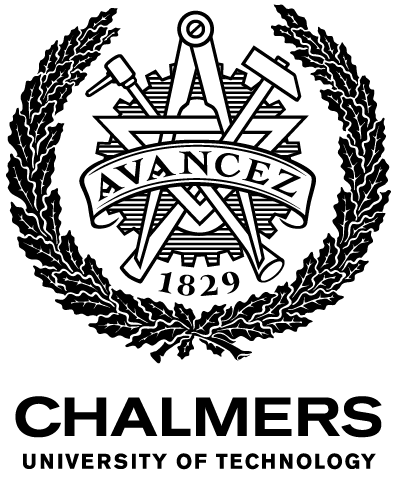
Chalmers University of Technology is hiring an Assistant or Associate Professor in Satellite Remote Sensing to join its leading Geoscience and Remote Sensing Division. The role focuses on advancing satellite-based Earth observation through research, teaching, and collaboration across academia and industry. Applications are open until 24 August 2025.
(Read more)
Open position: Assistant professor in AI for Sustainable transformation
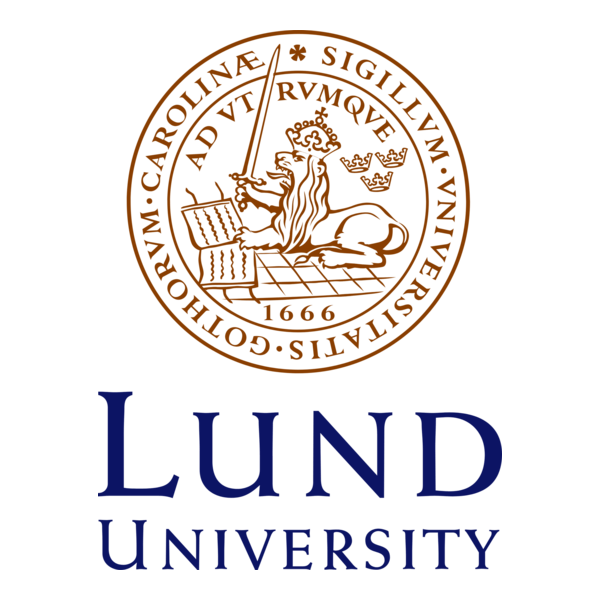
Lund University is hiring an Assistant Professor in AI for Sustainable Transformation at the IIIEE, focusing on cutting-edge interdisciplinary research that bridges digital technologies and climate action. The position offers strong support for external funding, teaching, and collaboration with societal partners, with a pathway to permanent employment. Applications are open until 11 August 2025, and international researchers are especially encouraged to apply.
(Read more)
Internship Opportunity at RISE Lund: Ecological Annotation of Drone Imagery

RISE Research Institutes of Sweden is looking for 1–2 motivated interns in Fall 2025 to annotate drone imagery for biodiversity AI research, supporting a collaborative project with Arla. Part-time (50%), based in Lund, and perfect for students in ecology, biology, or environmental science.
(Read more)
Your news in the newsletter!
Make sure to share your work with us, by sending us an email ( contact@climateainordics.com), posting in our Slack or some other channel, and we’ll add it to the news feed! Take the chance of showcasing your work or your events to the community!
Also be sure to follow us on LinkedIn and BlueSky. Climate AI Nordics will have the most impact if you repost and like our stories!
Climate AI Nordics is a network of researchers working to harness AI in tackling the climate crisis through both mitigation and adaptation.
We promote the development of AI-based tools and optimization methods that support sustainable decision-making—helping reduce emissions, restore ecosystems, and build climate resilience.

